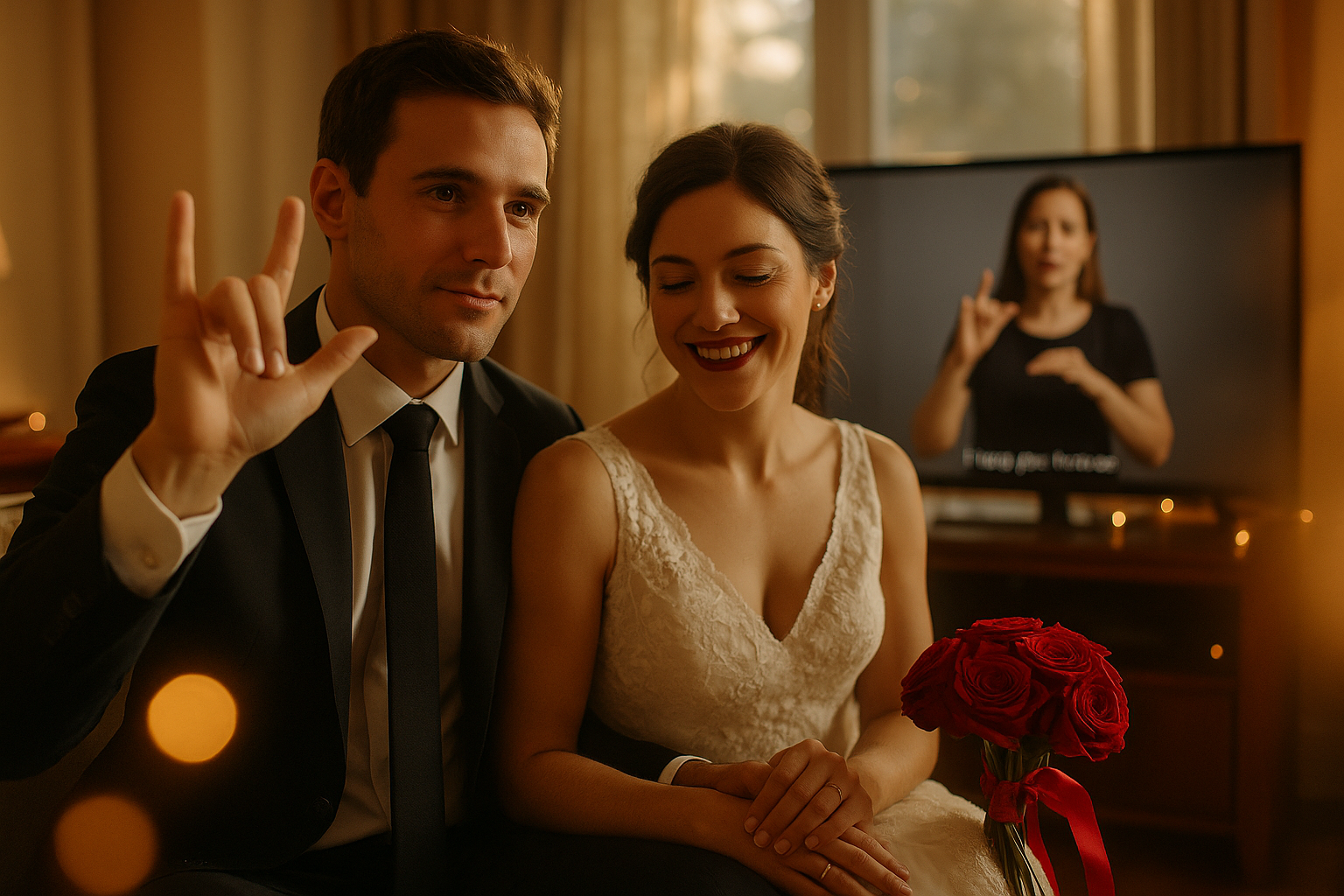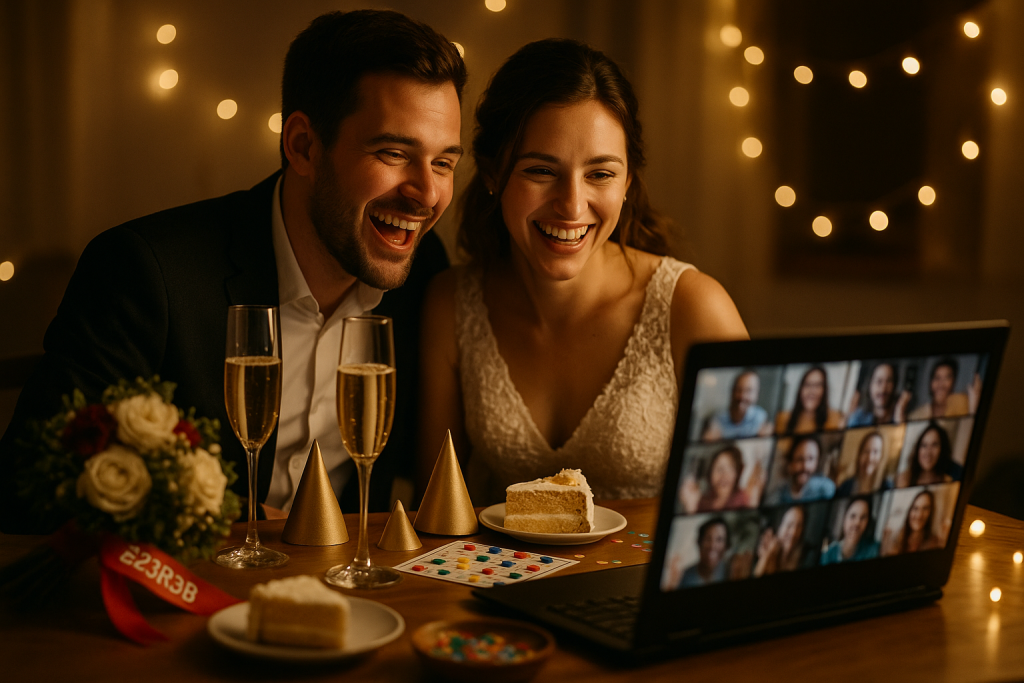Planning a wedding is an exciting journey, and for Deaf and Hard of Hearing couples, ensuring clear communication and inclusivity is paramount. With the rise of virtual weddings, it’s now possible to celebrate your love from anywhere in the world. Let’s explore how to make your virtual wedding both accessible and unforgettable.
Understanding Virtual Weddings
Virtual weddings, also known as online weddings or Zoom weddings, allow couples to get married online through live video platforms. These ceremonies are legally recognized and offer flexibility for couples separated by distance or those seeking a unique wedding experience.
Ensuring Accessibility in Your Virtual Wedding
To create an inclusive virtual wedding, consider the following steps:
1. Hire a Qualified Sign Language Interpreter
Engaging a certified sign language interpreter ensures that all participants can fully engage in the ceremony. Services like Deaf Services Unlimited offer personal interpreting services for various events, including weddings. Learn more about their services here.
2. Utilize Video Relay Services (VRS)
VRS allows Deaf and Hard of Hearing individuals to communicate with hearing people in real-time via a sign language interpreter. This service can be integrated into your virtual wedding to facilitate seamless communication. Read more about VRS.
3. Provide Captioning Services
Incorporating live captioning or Communication Access Real-time Translation (CART) services ensures that spoken content is accessible to all attendees. This is especially useful during speeches and vows. Discover more about making your wedding inclusive.
4. Choose an ASL-Fluent Officiant
Selecting an officiant fluent in American Sign Language (ASL) can make the ceremony more personal and engaging. For instance, “Vows in ASL” offers Deaf-centered wedding celebrant services. Explore their offerings.
5. Collaborate with ASL-Fluent Vendors
Working with vendors who are proficient in ASL can enhance the overall experience. For example, Elizabeth Victoria is an ASL-fluent wedding photographer who understands the unique needs of Deaf and Hard of Hearing couples. Check out her work.
6. Inform Guests in Advance
Communicate with your guests about the accessibility features of your virtual wedding. Providing information on how to access interpreters, captions, and other services will help everyone feel included.
7. Test Technology Before the Ceremony
Conduct a trial run to ensure that all technological aspects, including video quality, audio clarity, and accessibility features, are functioning correctly. This helps in identifying and resolving any issues beforehand.
8. Personalize Your Ceremony
Incorporate elements that reflect your personalities and relationship. Whether it’s a special song performed in ASL or a slideshow with captions, these touches make the ceremony uniquely yours.
9. Engage a Virtual Wedding Planner
Consider hiring a virtual wedding planner experienced in organizing accessible ceremonies. They can assist in coordinating interpreters, captioning services, and other accessibility needs.
10. Celebrate with Virtual Guests
Invite friends and family to join your virtual wedding from anywhere in the world. Ensure that the platform you choose supports accessibility features like pinning the interpreter’s video and enabling captions.
FAQs
Q: Are virtual weddings legally recognized?
A: Yes, virtual weddings conducted through authorized platforms are legally recognized in many jurisdictions. It’s essential to verify the legal requirements in your area.
Q: How can I find an ASL-fluent officiant?
A: Services like “Vows in ASL” offer Deaf-centered wedding celebrant services. Learn more here.
Q: What platforms are best for hosting a virtual wedding?
A: Platforms like Zoom are popular for virtual weddings due to their accessibility features, including live captions and the ability to spotlight interpreters.
Q: How do I ensure my virtual wedding is accessible to all guests?
A: Hire qualified interpreters, provide captioning services, and choose an accessible platform. Inform your guests about these features in advance.
Q: Can I have a virtual wedding if my partner and I are in different locations?
A: Absolutely! Virtual weddings are designed to unite couples regardless of their physical locations.
Planning a virtual wedding as a Deaf or Hard of Hearing couple is entirely feasible with the right resources and planning. By prioritizing accessibility and inclusivity, you can create a memorable and meaningful ceremony that celebrates your love. For more information on virtual weddings and to start planning your special day, contact us today.



